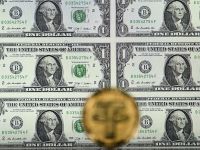Lebanon should treat countries that complicate the export of locally made pharmaceuticals the say way they treat the Lebanese companies, Industry Minister Hussein Hajj Hassan said Friday.
“Regrettably, many Arab and foreign countries make it very difficult to register Lebanese-made medications and drugs which make it nearly impossible to export them to these states. There is nothing wrong with the Lebanese-made drugs because they are thoroughly tested in our labs before shipping them to the markets,” he added.
“If these countries insist on this behavior, then we should reciprocate when it comes to importing foreign-made medications. But this decision should be taken by the government,” the minister said at the launch of the “National Campaign to Support Lebanese-Made Pharmaceuticals,” held at the Grand Serail in the presence of Health Minister Ghassan Hasbani.
The minister added that even in Lebanon, foreign-made drugs are given more priority and attention over locally produced medicines.
Citing an example, Hajj Hasan said Lebanon consumes $1.3 billion in medicines and drugs annually, but only 7 to 10 percent of these pharmaceuticals are produced locally.
“This means that the share of Lebanese-made drugs is hardly $100 million. The labs here facilitate the entry of foreign-made drugs. I don’t see a reason why some of the foreign and Arab states complicate the registry of our drugs. It has nothing to do with quality and compliance with international standards. They are simply choking our industries so they won’t enter their markets,” the minister stressed.
This is not the first time Hajj Hasan made these strong statements about foreign competition.
The minister has always called for reviewing some trade treaties with countries he believes are not adhering to the terms of the agreements.
“There is nothing wrong with our industries and especially the pharmaceuticals. We have excellent labs and equipment that are used in other advanced countries. We also have very qualified technicians and pharmacists who all graduated from respectable universities,” Hajj Hasan argued.
He added that the Lebanese labs are supervised and monitored by internationally certified foreign companies and this by itself is a testimony that the drugs made in the country are of a high standard.
Hajj Hasan indicated that he presented a comprehensive plan till the year 2025 to modernize and improve the quality of Lebanese made goods.
The minister renewed his warning of the alarming rise in the trade deficit, which reached $15.7 billion in 2016.
“We need to close this gap. We import $18.7 billion of goods while our exports reached $2.9 billion only in 2016.
He called on Prime Minister Saad Hariri and the Cabinet to hold a special session dedicated to the issue of the Lebanese industry.
For his part, Hasbani voiced the same concerns of Hajj Hasan.
The minister said that he would allow the pharmacists in Lebanon to replace foreign-made generic medicines with locally made generic drugs.
“The Health Ministry is aware that the pharmaceutical factories in Lebanon produce high quality drug and they are one of the pillars of the Lebanese economy. But these companies are facing fierce competition from foreign firms and this is causing damage to our local manufacturers,” Hasbani said.








